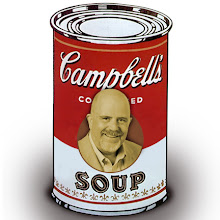An Austin client of mine was at a Rackspace sales symposium yesterday at the new Hyatt Grand Hotel, so I spent some time with him and then working remotely before going to a funeral for a friend's mother. As I was working on some business after our meeting, I noticed an influx of Air Force people in uniforms. I quickly found out that they were mental health professionals from various U.S. bases to discuss the ongoing treatment of posttraumatic stress disorders.
From talking on one Air Force master sergeant, PSTD is a growing concern in the Air Force with our continued involvement in Iraq and Afghanistan. I asked him if there was a public affairs aspect to this conference, and he admitted that there wasn't one.
The inquisitive side of me found an Air Force lieutenant colonel who knew who the public affairs officer was for her command, but she also admitted that he wasn't there. A flag officer or two was on the program, she said, but there was nobody from the public affairs team to help discuss ways to take advantage of their many communications tools.
From what I read in the paper (when I have time to really read them,) there has been a lot written on the topic and the need for intervention for those who are suffering from PTSD. Yet, it's amazing how the Air Force mental health community overlooks the need to use some basic public affairs tools. From writing an article for the base newspaper to working with local media on outreach programs, the uniformed and civilian mental health professionals could reach the centers of influence in their base communities. A military public affairs professional could have helped the mental health community here in San Antonio develop a strategy on communicating the availability of the military, civilian and VA resources available to Afghan and Iraqi veterans suffering from PSTD and traumatic brain injury.
Having worked in public affairs at Wilford Hall before retiring in 1997, I know that some medical types don't understand how public affairs helps them communicate to their client base. Some tried to over manage the communications process by writing things for an article in the hospital newsletter that would impress a thesis committee but would confuse the spouse of a first term airman. Despite our communications styles, every mental health team should now be looking at the many tools available to them from their military public affairs programs so they can communicate the full capabilities of their program to the military, their spouses, their families and their loved ones.
The Air Force spent thousands of dollars on travel, per diem and missed appointments to discuss the issue for this conference. Yet, in the midst of all this strategy formulation, it seems somewhat ironic that their commanders and planning types could forget the need to have professional public affair representation work on helping them reach out to those suffering from PTSD. Here's hoping that if there is another conference on this topic that the mental health community doesn't overlook the need to involve their public affairs professionals as part of their outreach strategy.
Why Lawyers Put Their Work in Libraries
-
Working on the LexBlog Library, a worldwide collection of legal insight and
commentary authored by legal practitioners, academics, law students, and
othe...
1 week ago




No comments:
Post a Comment